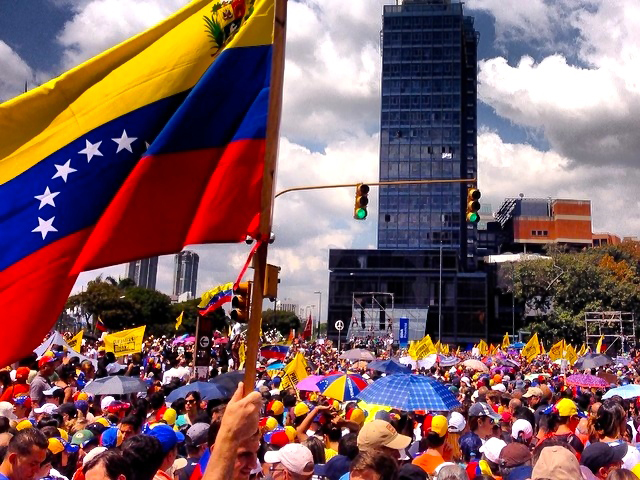Why Venezuela’s Chaos Matters to Us
Israel Ortega /
As we have been reporting, Venezuela is in chaos. What Americans may not realize is how the South American country’s turmoil affects our interests.
Venezuela has many crises, but when inflation has doubled in the past year and basic necessities like toilet paper and electricity are lacking, the people revolt. Led by the young, charismatic, and American-educated opposition party leader Leopoldo Lopez, thousands of Venezuelans are taking to the street to voice their discontent.
Their frustrations are directed squarely at Venezuelan President Nicolas Maduro—a Hugo Chavez protégé who is happily embracing totalitarianism and telling supporters, “I’m not going to step down…..No one will remove me from the path of building the Bolivarian revolution.”
The White House’s response has been a predictable, cookie-cutter statement devoid of any urgency or meaningful substance. But then again, this is precisely what we have come to expect from one of the least engaged and capable Administrations when it comes to advancing our country’s interests on the global stage.
From Egypt to Syria to Libya, to name a few, the White House’s lack of preparedness and vision has cost our country dearly, including the loss of four American lives in the Benghazi attack on our diplomatic missions. As John Fund wrote, this shouldn’t surprise us. As an Illinois state senator, President Obama voted “present” 129 times, previewing a reflection of his foreign policy approach. As Heritage’s Kim Holmes and James Carafano put it:
The Obama doctrine revolves around trust in the ability and willingness of international institutions to solve the most fundamental foreign policy challenges, such as terrorism or nuclear proliferation, often before we turn to our traditional friends and allies.
Indeed. The Obama White House and State Department operate as though it’s better to ignore international crises or outsource responsibility to Russia than to confront a belligerent Iran bent on pursuing nuclear capabilities.
In this light, Venezuela is just another reminder of the many failures of the Obama Doctrine. Rather than confront the threats posed by a Venezuelan government providing safe haven to Hezbollah, our Secretary of State is describing the situation in the South American country as nothing more than a weakening of democratic institutions.
In the absence of a strong American foreign policy, expect our national security interests to be tested by totalitarian regimes working with our adversaries at every possible turn.
Venezuela is not alone, of course. In just a couple of weeks, the Obama Doctrine will be tested when El Salvador holds a presidential election. The outcome matters to us, because as Heritage President Jim DeMint describes in a recent column, “El Salvador may be about to turn into a gang haven that will act as a transit point for drugs plunging America’s inner cities further into crime and despair. And the whole mess can be laid at the White House’s door.”
Yet another reminder of the perils of an American foreign policy that votes “present.”

